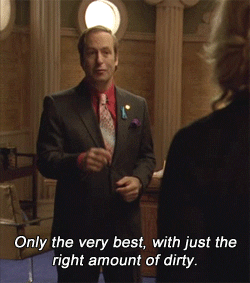Communication Guide for Workplace

I could start this article by writing about why communication is important, but I guess you already realise why it is and hence you are reading this. Cutting down the boring stuff and getting down directly to the point, below are a few essentials on how you can improve your communication skills and do better at this remote age.
Listen more than you talk
We do get that some of us are chatterboxes, but interrupting others while they are speaking is not cool. Interrupting the speaker in between comes with many cons. It might show you as a defensive person, might break the flow of the speaker, might deviate the conversation from where it should actually go. Go handy with a pen and notebook. It helps a lot to note down important points from the conversation and remember your doubts.

Speak just Enough
Most of the people hate to be confused. Being precise and direct on what you want to speak helps the listener to understand what exactly you are trying to speak plus saves your time and energy, may it be on calls, texts or emails. Conveying what we want to say in as few words as possible is the best way to go.

Speed Thrills but Kills
Thinking a bit before you start speaking will help you decide exactly what you should be saying. Speaking too fast, interrupting others just shows that you are not very confident and you have a fear that you won’t be listened to. Going slow and steady helps you find correct words for the conversation and shows your confidence.

Watch your Tone
Be polite, be friendly — Ya, nothing new here but it is ignored the most in a workplace. Although watching your tone could be easy when you are on call with someone. It actually becomes difficult to determine someone’s tone on text or email. So making sure your message has a clear language could be very beneficial.

Be Professional
You cannot be totally casual at your workplace. Acting and speaking professionally will build a positive image of you among others.
Avoid using shorthands while texting, like ‘ttyl’, ‘i m f9’, ‘u r nt kul’Avoid pseudo phrases or abbreviations like ‘Hmm’, ‘oho’, ‘K’ and so on.
Avoid using too many question marks, exclamation points or full stops, like ‘where are you????’, ‘Please wait…..’
Convey your concern/issue/message directly without waiting for a reply to a ‘Hello’ or ‘Hi’.
Your messages should convey request not order.

Confidence is the new sexy
Confidence can be acquired. Showing that you are confident could be very easy:
Speak slowly and steadily.Rushing with your words shows lack of confidence.
Listen to the other person and be empathetic.
You must speak firmly but politely.
But do not be arrogant.Not showing yourself confused with what you want to say helps a lot.
Avoid looking here and there and have direct eye contact while meeting someone.
Small Talk is always going to take you a mile longer
Asking a few questions before or at the end of the conversation always helps you build a rapport with the other person. Asking questions like — ‘How was your weekend/day?’, ‘How is your work going on?’ and so on will not hurt. Having a context of last small talk gives a brownie point. Helps you develop trust with the other person.

Always be Empathetic
It is not always hunky dory with a person. Saying ‘I understand what you feel’, ‘It must be tough for you’ shows that you empathize with the person and you are lending emotional support for the person. Watch out for hints from the other person for his/her complaints, fear, remorses or concerns.

Give respect, Take Respect
People tend to connect more with you when they are treated equally and with respect. Few points to remember here are:
Avoid being distracted while you are on a callCalling the other person with their names
Not writing mails/messages with half heart
Avoid interrupting the person more often
You should not be taking ages to reply to the email/messages

Practice makes a man perfect (and women)
The art of communication is not something that can be mastered in one day. We all learn. Well, some learn it quickly and others take time. But practicing the better ways of communicating will help you to convey what you want to say, and be understood.
